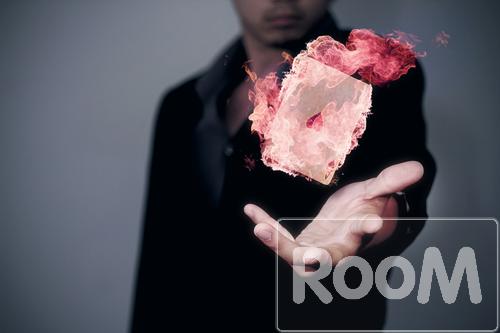In a closed series our RooM Connectors have interviewed the most established and promising photography talent globally.
It's an insta_view of some of the best talent in the World. Enjoy.
Ken Lam
28/05/2014 https://www.flickr.com/photos/ck_lam_/by marianne@roomtheagency.com
Quebec based Ken is a passionate photographer whose work ranges from beautiful lifestyle moments to surreal concepts - always with clear ideas that are totally on trend with the world of advertising photography.

Tell us a little bit about yourself – what’s your background and what you do for a living?
“I want to be an artist”. As a child growing up in an Asian family, that was my response to the question of what I want to do in the future. As many may know, while most Asian parents support their children's artistic development, few encourage them to pursue a career in the art industry because it is “risky”. Under the influence of my parents and my peers, choosing a career that offers stable employment and salary prospects have always been the better option – which I won’t argue with. I’m now an engineer in the aerospace industry which has very little to do with art – don’t get me wrong though, I still believe that was the right decision to take. Despite the practical considerations or parental expectations that were involved, I do enjoy my job and I am happy enough to indulge my passions for photography in my leisure time.
You grew up in artistic environment which contributed to your love of photography but you’ve said you didn’t become seriously interested in it until you went to university. Do you remember what the catalyst for that change was?
Since I was a child, I have always enjoyed making pencil sketches and watercolor paintings. Photography only came into my life when I was pursuing my Mechanical Engineering bachelor degree. At the time, I owned a point and shoot camera, but it never occurred to me that I needed a DSLR to explore possibilities that a point and shoot camera cannot deliver. It all started with one of my classmates who bought his first DSLR. I picked up a few basic photography and DSLR knowledge from a booklet that I borrowed from him. Honestly, I did not know that DSLR cameras have become more affordable than they used to be. One fine afternoon after class, I took the plunge and picked up my first DSLR camera – that’s how my photography journey started. Photography offers me an instant creative fulfillment which I could not get from drawings.

What photography kit do you usually use, is there any particular software you prefer for editing and what are your thoughts generally on mobile photography and photography apps?
I use a Canon 5D mark II and mostly shoot with a Canon 50mm F1.8 II lens (or sometimes the Canon EF 70-200mm f/4 L USM). I’ve always edited my photos with Lightroom and Photoshop. I, for once, think that photography apps like Instagram won’t do photographers’ justice, but my opinion has changed. Photography apps are merely tools – it’s more of a medium for reaching your audience and there is no art without an audience. In my opinion, those who understand and appreciate high quality work from professionals will continue to do so – those who don’t understand cannot be mentally bothered to reflect on what they are seeing.
Where do you get the inspiration and ideas for your conceptual images, what’s the typical evolution of such shots and how long do you typically work on each of them?
Aside from photography, I have a passion for magic tricks. The main goal of magic is to create a short moment of wonder in which anything is possible. This is also what I want to achieve through photography. Most of my conceptual images were taken throughout my 365 Days of Photography project. Each conceptual photo started with a quote (or key words) and an image was then created to match with it, while including an element of surprise (or magic). Since I committed to produce one photo daily while juggling it with my studies, I had less than 12 hours to brainstorm (usually takes the longest), plan, shoot and process each photo. Ultimately, with my limited skills and techniques, I want my audience to ask themselves “How did he do that?”

Annie Leibovitz said that “a very subtle difference can make the picture or not”. Is that something you would agree with and if so, are there examples of this in your own work or other photography that springs to mind?
I do believe that is an accurate statement. A photo that makes effective use of light and is well composed can be viewed as a good photo. What makes it a better photo is when it tells a good story or conveys a message – this is definitely something that I want to achieve with my photography, but I still have a lot to work on.
Visual communication is becoming more and more important as a common language but from an advertising perspective there are still subtle differences from country to country. Is that something you think about when you create images and do you think it even matters?
Photos, just like words, create a mental message in the audience mind. While the color white is often seen as purity and innocence in the Western culture, it is traditionally associated with death and funerals in some Asian countries. So depending on the audience’s culture, the mental message may vary. Since Facebook and Flickr are the main platforms that I share my work, I tend to produce conceptual photos that can be easily understood by a broad audience that is not restricted by religion or nationality.

This insta_view can be republished but it must credit RooM the Agency and link directly to the source.

